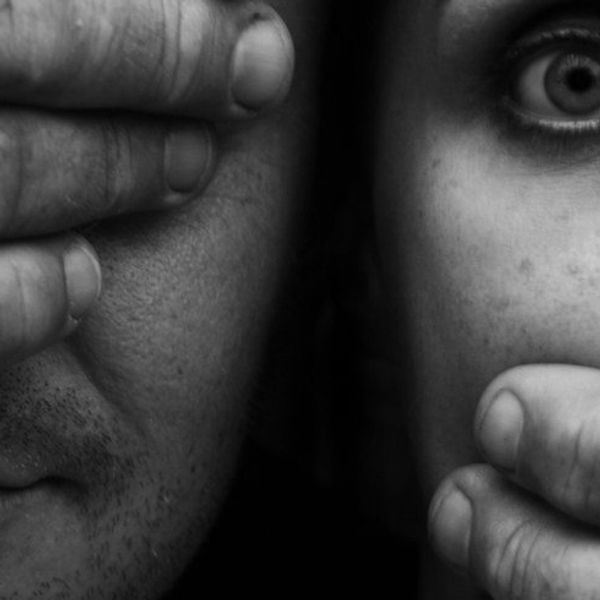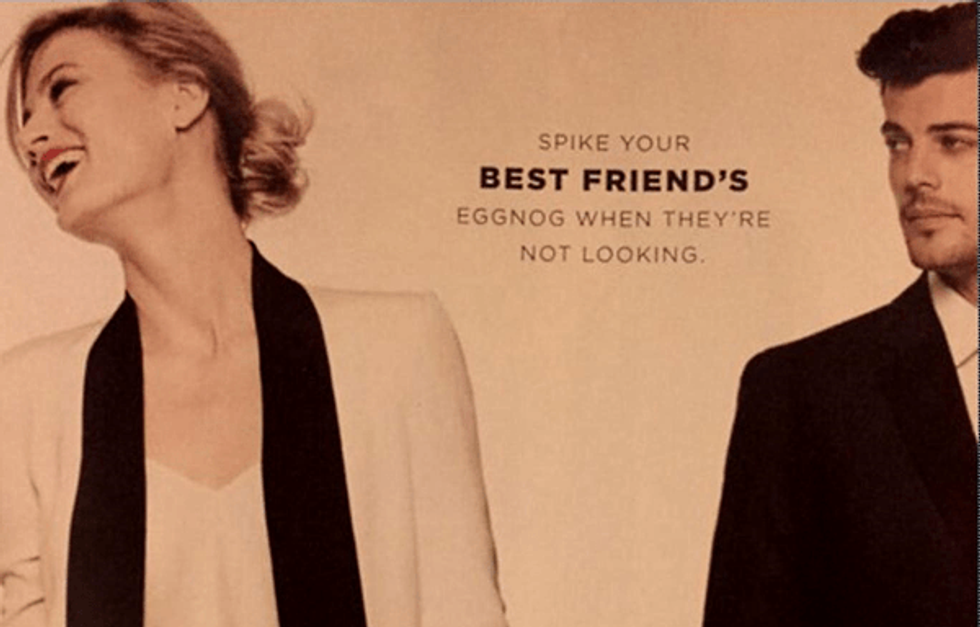TRIGGER WARNING: This article contains information about sexual assault and/or violence which may be triggering to survivors.
Disclaimer: I've chosen to use she/her as the pronouns throughout my article, focusing on sexual assault and the impact that it has on women. I'm not ignoring the impact that rape culture and sexual assault have on men or other genders.
"You know you like it."
"Boys will be boys."
"Maybe if you weren't dressed like a whore."
"You shouldn't have drank so much."
"You're lying. I don't believe you."
"You were asking for it."
"This is all for attention."
" God, get over it. It was just sex."
"You're such a slut."
"Are you sure you said no?"
"Why didn't you fight him off or push him away or something?"
Why is it that when a woman is forced to have sex against her will, society looks for a reason to blame her? Rape (generally any form of sexual assault) is traumatic. Victims are left feeling exposed, abused, violated, and betrayed. She is left with very few choices, and it feels as her voice is being muffled, because if a victim seeks justice, her inner demons are only part of the battle.
Reporting a rape in a society where victims are treated like the boy who cried wolf requires courage and fortitude – both of which are difficult to muster up when you've been stripped raw. There are doctors, police, lawyers, and paperwork. Victims are thrown into a whirlwind of nightmares where not only her enemies question her integrity, but even her friends and family – people who have promised to be there to support her through anything – criticize her actions.
Victim blaming is real and deeply ingrained in our culture, where a rapist is pardoned because a woman drank a little too much. Blue Seat Studio, a film production company, produced an animated short called "James is Dead," which illustrates that the victim is never to blame – James shouldn't have been drinking if he didn't want to get murdered; James should've worn a turtleneck if he didn't want to get stabbed in the neck; James shouldn't have been so friendly if he didn't want to meet a murderer. The video exemplifies the ridiculousness of believing that not all rapes are rapes as well as not all rapists should be considered rapists. It's never the victim's fault. No one should have to send a text saying: I'm sorry that I drank a little too much and I'm sorry that I didn't say no. Sobriety, clothing and past sexual experience do not play a part in determining if a victim was truly raped. In reality, the only thing that matters is if she said "yes" or not.
For some reason, society does not understand that consent isn't complicated. People see consent as a set of blurred lines (the phrase popularized by the 2013 hit "Blurred Lines"). However, consent is about a "yes" from all parties involved. If anyone involved is compromised by alcohol, drugs, or fear, sex or sexual acts are not consensual. If someone says yes to one sexual act, it doesn't mean they say yes to everything. Another short animated film by Blue Seat Studio comedically and articulately defines consent with an analogy about making tea, repeating the motif, Do not make them drink the tea. Consent is as simple as it's either a very obvious yes or you shouldn't be having sex at all.
We live in a culture that excuses sexual assault, one where a rapist's swim times are more important to the judge than the facts. Rape culture, a term coined by feminists in the 1970s, is:
a complex set of beliefs that encourage male sexual aggression and supports violence against women. It is a society where violence is seen as sexy and sexuality as violent. In a rape culture, women perceive a continuum of threatened violence that ranges from sexual remarks to sexual touching to rape itself. A rape culture condones physical and emotional terrorism against women as the norm . . . In a rape culture both men and women assume that sexual violence is a fact of life, inevitable . . . However . . . much of what we accept as inevitable is in fact the expression of values and attitudes that can change. (Source: Transforming Rape Culture, Buchwald, http://www.wavaw.ca/what-is-rape-culture/)
and is something that is inescapable. Pop culture feeds rape culture. Justin Bieber's song "What Do You Mean?" sexualizes a woman's sexual indecision: “What do you mean? / Ohh ohh ohh/ When you nod your head yes / But you wanna say no / What do you mean?” Not only is the "blurred lines" present, but it's clearly what creates the sexual tension in the song. Bieber also presents himself as the protagonist, trying to decipher and decode his indecisive, out-of-control girl (which is a misogynistic stereotype, but that's the topic for another article), justifying his actions. The song promotes the notion that women do not know what they mean or want.
This advertisement from Bloomingdale's 2015 holiday catalog could seem harmless enough, like a funny prank, but it promotes essentially "drugging" a friend. Rape culture is about normalizing forcing someone to do something he or she does not want to do.
There was time in which rape was punishable by death. Today, we've seen that rape is less consequential than possession of marijuana as Brock Turner sits in his Ohio home instead of behind bars. 1 in 5 female college students will experience sexual assault over the course of their undergraduate education. That's 20%. America needs to get serious about rape and about rape culture because while we're shouting about protecting our guns and the rights of unborn babies, we're ignoring the safety of women.
More Information:
https://www.rainn.org/ - RAINN (Rape, Abuse & Incest National Network) is the nation's largest anti-sexual violence organization.
http://www.nsvrc.org/ - The NSVRC’s (National Sexual Violence Resource Center) Mission is to provide leadership in preventing and responding to sexual violence through collaboration, sharing and creating resources, and promoting research.
http://endrapeoncampus.org/ - End Rape on Campus (EROC) works to end campus sexual violence through direct support for survivors and their communities; prevention through education; and policy reform at the campus, local, state, and federal levels.
http://www.upsettingrapeculture.com/ - FORCE: Upsetting Rape Culture is a creative activist collaboration to upset the culture of rape and promote a culture of consent. FORCE designs communications campaigns to generate media attention and get millions of people talking. Nationally known for producing large-scale public art projects, FORCE believes that a more difficult and honest conversation needs to happen in America to face the realities of sexual violence, and envision a world where sex is empowering and pleasurable rather than coercive and violent.
http://culturesofconsent.org/ - For those in the D.C. area, this organization promotes consent and safe sex practices.






















